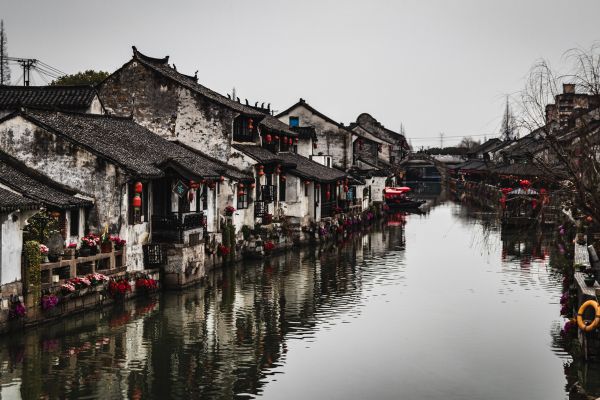
As shown in the Brentwood case (2020), arbitral awards rendered in Mainland China by foreign arbitral institutions can be enforced as foreign-related Chinese awards and shall be subject to the same stringent judicial review standards as Chinese arbitral awards.
The situation is getting Janus-like when foreign arbitral institutions are allowed to administer arbitration in Mainland China. As shown in the case of Brentwood Industries (2020), arbitral awards rendered in Mainland China by foreign arbitral institutions can be enforced as foreign-related Chinese awards and shall be subject to the same stringent judicial review standards as Chinese arbitral awards.
In August 2020, Guangzhou Intermediate People’s Court of China (“Guangzhou Intermediate Court”) rendered a ruling in Brentwood Industries v. Guangdong Fa-anlong Mechanical Equipment Manufacture Co. Ltd. (2020) [1] (布蘭特伍德工業有限公司、廣東閥安龍機械成套設備工程有限公司申請承認與執行法院判決、仲裁裁決案件, “Brentwood Case”) concerning an application for recognition and enforcement of the arbitral award. According to the ruling, the arbitral award rendered by the International Court of Arbitration of the International Chamber of Commerce (ICC) in Guangzhou was a foreign-related Chinese award and shall be applied for enforcement in accordance with China’s Civil Procedure Law rather than the New York Convention.
This is the first time of China to consider an arbitral award rendered in mainland China by a foreign arbitral institution as a Chinese arbitral award. Previously, Chinese courts either determined the arbitration agreement invalid or considered it as a foreign arbitral award.
China is welcoming foreign arbitral institutions to arbitrate in China, and the Brantwood Case has cleared the way for this trend. However, this also indicates that arbitrators and parties need to learn in advance how Chinese courts review Chinese arbitral awards.
I. Facts and Ruling
Brentwood Industries Co. Ltd. (“Brentwood”), Guangdong Fa-anlong Mechanical Equipment Manufacture Co. Ltd, and Guangzhou Zhengqi Trade Co. Ltd. entered into the Sale Contract of Construction Equipment and its supplementary agreements in 2010. The parties agreed in the contract that any dispute should be submitted to the ICC Arbitration Commission and settled by arbitration at the place of the project (Guangzhou) according to international usages. Chinese law should be the applicable law for the contract.
In May 2011, Brentwood applied to Guangzhou Intermediate Court for invalidating the involved arbitral clause. In February 2012, Guangzhou Intermediate Court rendered a ruling, verifying the validity of the arbitral clause. [2]
In August 2012, Brentwood filed an arbitration application with the International Court of Arbitration of the ICC.
In March 2014, Jane Willems, the sole arbitrator of the International Court of Arbitration of ICC rendered the final award No. 18929/CYK in Guangzhou.
In April 2015, Brentwood applied to the Guangzhou Intermediate Court to recognize the arbitration award as a foreign award or a Hong Kong award in accordance with the New York Convention.
On 6 Aug. 2020, Guangzhou Intermediate Court rendered a final ruling.
Guangzhou Intermediate Court determined that the arbitral award was rendered by a foreign arbitral institution in Mainland China, and it could be considered as a foreign-related Chinese arbitral award, and thus Brentwood could apply for enforcement of the Chinese arbitral award in accordance with China’s Civil Procedure Law.
However, Brentwood proposed to apply for recognition and enforcement of the arbitral award based on the New York Convention or the Arrangements on the Reciprocal Enforcement of Arbitration Awards by Mainland China and the Hong Kong Special Administrative Region (《關于內地與香港特別行政區相互執行仲裁裁決的安排》) (if the award was deemed as the one rendered by ICC’s branch in Hong Kong). The legal basis of this application was obviously wrong. The court had given repeated explanations, yet Brantwood refused to correct it. Therefore, it should bear the corresponding legal consequences accordingly.
The Court indicated that, after the termination of review of this case, Brantwood may file a new application for enforcement according to law.
The Brantwood Case provides an answer to China’s exploration of the issue concerning arbitration conducted by foreign institutions in China.
II. How Do Chinese Court View the Arbitration in Mainland China by Foreign Arbitral Institutions
1. Is the arbitration agreement valid, if the clause provides for arbitration in Mainland China by foreign arbitral institutions?
At present, Chinese courts consider this kind of arbitration agreement valid, though opinions diverged before 2013.
(1) Before 2013:Two opposite positions
One view denied the validity of such arbitration agreements, arguing that the arbitral commission recognized by the Chinese Arbitration Law did not include overseas arbitral institutions. They also believed the Chinese government had not opened the arbitration service market overseas. [3]
For example, in the 2004 Züblin Case, the Supreme People’s Court (SPC) held invalid the arbitral clause where parties agreed to apply ICC Arbitration Rules and to arbitrate in Shanghai. [4] Later on, Chinese courts had confirmed this view in many cases, such as the 2006 DMT Case, [5]the 2009 Salzgitter Case, [6]and the 2011 Jiangsu Foreign Trade Company Case. [7]
The other view supported the validity of such arbitration agreement, holding that the term “arbitral commission” should be interpreted extensively and that foreign arbitral institutions had no legal obstacles to arbitrate in Mainland China. [8]
For example, in December 2004, Xiamen Intermediate People’s Court confirmed the validity of an arbitral clause where parties agreed to apply ICC Arbitration Rules and to arbitrate in Beijing. [9]Afterward, in the April 2009 “Duferco Steel Company” Case, the court also rendered a ruling to enforce an arbitral award rendered by ICC in Beijing. [10]
(2) After 2013: from divergence to convergence
March 2013 witnessed a milestone case. In “Re the Request for Instruction on the Application for Confirming the validity of the Arbitral Clause by the Applicant Anhui Longlide Packaging and Printing Co., Ltd. and the Respondent BP Agnati S.R.L” (《關于申請人安徽省龍利得包裝印刷有限公司與被申請人BP Agnati S.R.L.申請確認仲裁協議效力案的復函》), the SPC clearly verified the validity of the arbitration agreement where the parties agreed to arbitrate by ICC in Shanghai. [11]
This position was also confirmed in other cases afterward. In the “Dacheng Industrial Gas” Case (2020), the court held valid the arbitration agreement providing for arbitration by the Singapore International Arbitration Centre (SIAC) in Shanghai. [12]
2. Are the arbitral awards rendered in Mainland China by foreign arbitral institutions foreign awards or Chinese awards?
If these awards as deemed as foreign awards, Chinese courts shall conduct the review in accordance with the New York Convention, whereas if they regarded as Chinese awards, such review shall be conducted pursuant to China’s Civil Procedure Law. In the Brentwood Case, the court adopted the latter attitude.
Previously, in the aforesaid “Duferco Steel Company” Case (2009), Ningbo Intermediate People’s Court considered ICC’s arbitral award rendered within the territory of China as a non-domestic arbitral award and ruled to recognize and enforce in accordance with Article 1 (1) of the New York Convention.
Clearly, the Brentwood Case corrected the method in the 2009 “Duferco Steel Company” Case. This is the first time Chinese courts characterize an arbitral award rendered by a foreign arbitral institution in Mainland China as a foreign-related Chinese arbitral award and clarified that it should be reviewed and enforced in accordance with China’s Civil Procedure Law.
III. Opening the mainland China market to Foreign Arbitral Institutions
In November 2019, Shanghai announced that arbitral institutions in foreign countries as well as in Hong Kong, Macao, and Taiwan were allowed to register to set offices to administer arbitration in Lin-gang Special Area in Shanghai Free Trade Zone. [13]In December 2019, the SPC issued a document supporting Shanghai’s approach. (See my earlier post for a detailed discussion on the Shanghai Policy) [14]
In August 2020, China’s State Council indicated that the renowned foreign arbitral institutions and dispute settlement institutions were allowed to set offices in Beijing to provide arbitration services. [15]
As offices having been set in Shanghai and Beijing, the arbitral awards by these institutions shall be considered as foreign-related Chinese awards, rather than foreign arbitral awards. The legal basis will be China’s Civil Procedure Law instead of the New York Convention when Chinese courts conduct judicial review.
This means that Chinese courts can either refuse to enforce arbitration awards or set aside arbitration awards. There are more diversified judicial review channels. Therefore, such arbitral awards will be subject to stricter supervision by Chinese courts, which may not be good news for overseas arbitral institutions.
For the parties, if they choose a foreign arbitral institution in the arbitration agreement, and choose a place of arbitration in Mainland China at the same time, they need to be aware of the Chinese regulatory standard in advance.
For arbitrators, especially foreign arbitrators who may lack a good knowledge of China’s judicial review of arbitration, they need to fully consider the impacts of potential review by the Chinese courts in the future.
[1] 廣州市中級人民法院(2015)穗中法民四初字第62號民事裁定書。
[2] 廣州市中級人民法院(2011)穗中法仲異字第11號民事裁定書。
[3] 康明:《我國商事仲裁服務市場對外開放問題初探——兼與生長同志商榷》,載《仲裁與法律》2003年第6期;李健:《外國仲裁機構在中國內地仲裁不可行》,載《法學》2008年第12期。
[4] 《最高人民法院關于德國旭普林國際有限責任公司與無錫沃可通用工程橡膠有限公司申請確認仲裁協議效力一案的請示的復函》,[2003]民四他字第23號。德國旭普林國際有限責任公司與無錫沃可通用工程橡膠有限公司申請確認仲裁協議效力案,無錫高新技術產業開發區人民法院(2004)新民二初字第154號裁定書。
[5] 《最高人民法院關于仲裁條款效力請示的復函》,[2006]民四他字第6號。河北省高級人民法院(2006)冀民三初字第2-1號裁定書;最高人民法院(2007)民四終字第15號裁定書。
[6] 《最高人民法院關于夏新電子股份有限公司與比利時產品有限公司確認經銷協議仲裁條款效力的請示的復函》,(2009)民四他字第5號。
[7] 《最高人民法院關于Salzgitter Mannesmann International GmbH與江蘇省對外經貿股份有限公司之間仲裁協議效力的復函》,(2011)民四他字第32號。
[8] 王生長:《國際商會仲裁院能否在中國內地進行仲裁?》,載《仲裁與法律》2003年第6期。
[9] 福建省廈門市中級人民法院(2004)廈民認字第81號裁定書。
[10] 寧波市中級人民法院(2008)甬仲監字第4號民事裁定書。
[11] 最高人民法院(2013)民四他字第13號。
[12] 上海市第一中級人民法院(2020)滬01民特83號民事裁定書。
[13] 上海市司法局《境外仲裁機構在中國(上海)自由貿易試驗區臨港新片區設立業務機構管理辦法》(2019年11月)。
[14] 最高人民法院《關于人民法院為中國(上海)自由貿易試驗區臨港新片區建設提供司法服務和保障的意見》(法發〔2019〕31號)。
[15] 國務院《關于深化北京市新一輪服務業擴大開放綜合試點建設國家服務業擴大開放綜合示范區工作方案的批復》(國函〔2020〕123號)。
Photo by White.RainForest ? 易雨白林. (https://unsplash.com/@whiterainforest) on Unsplash
Contributors: Jian Zhang 張建







